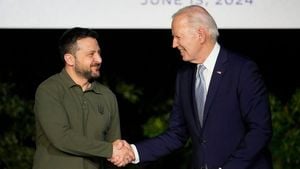Bus services between Karnataka and Maharashtra were abruptly halted starting 7 PM on February 22, 2023, after violent incidents erupted over language use between drivers and passengers. Both the North Western Karnataka Road Transport Corporation (NWKRTC) and the Maharashtra State Road Transport Corporation (MSRTC) announced the suspension following assaults on drivers, sparking significant tensions between the two states.
The tensions began to escalate on the evening of February 21, 2023, when Mahadev Hukkeri, a bus driver, faced harassment for requesting passengers to communicate in Kannada. This request came after he noted a boy and girl conversing among themselves, resulting in immediate threats followed by physical assault. The situation intensified when pro-Kannada activists later attacked Bhaskar Jadhav, another MSRTC driver, near Chitradurga, demanding he speak Kannada as well.
These assaults were not isolated incidents. A series of retaliatory actions and heightened passions reflected the longstanding border dispute between Maharashtra and Karnataka. The tussle over the Belagavi region has led to mounting confrontations over language and territorial claims, with many Marathi-speaking residents advocating for integration with Maharashtra, much to the dismay of local Kannada speakers.
The fallout from these clashes was immediate. The transport services faced major disruptions, with groups like Shiv Sena (UBT) expressing their frustration at the Kolhapur Central bus stand. Activists took to the streets, calling for immediate action and demanding apologies from the Karnataka government. "The Maharashtra government should apologize for this act, else a befitting reply will be provided," said Vijay Dewane, district convenor of Shiv Sena (UBT).
Frustration was palpable among the transport workers as well, particularly after reports surfaced of the attacks on drivers. Prashant Thorat, who was present during the assailant’s attack on his colleague, recounted, "Our driver was pulled out of the bus. His face was blackened. The activists raised slogans screaming ‘If you can't speak Kannada, then you will not be allowed to enter Karnataka.’" Instances like these raised serious concerns over driver safety across state lines.
Transport Minister Pratap Sarnaik categorically stated, "Bus services won't be resumed until the Karnataka government clarifies its stance on the issue." His remarks indicated the Maharashtra government's firm position and heightened mistrust. The transport unions echoed this sentiment, citing the need for coordinated security measures between the states to protect both passengers and drivers. The MSRTC has temporarily canceled at least 250 bus services, causing widespread passenger disruptions.
While police investigations have led to the arrest of four individuals related to the assault on Hukkeri, additional allegations surfaced under the Protection of Children from Sexual Offences (POCSO) Act against him. The girl involved claimed derogatory remarks were made when she was asked to speak Kannada. Belagavi's local police commissioner emphasized the need for neutrality, stating they would thoroughly investigate both sides of the case.
Communities on both sides of the border continue to feel the impact of these incidents. Pro-Kannada activists protested against the police's action, proclaiming it was politically motivated and demanding justice for their fellow residents. These protests included blocking routes and burning effigies, showcasing the raw emotions surrounding the regional identities involved.
The Maharashtra-Karnataka border issue originates from states formed along linguistic lines, and this flashpoint involving transport workers serves as just one of many reminders of the challenges this division presents. Transportation authorities stressed the urgency of resolving inter-state disputes, which have historically burdened the moving public with the consequences of broader geopolitical accidents.
While both sides find themselves on edge, it is clear there needs to be open communication and dialogue, particularly when it concerns the working lives of employees and the travels of ordinary citizens. The psychological impacts of these events extend beyond mere transport cancellations—they echo the deep-rooted sentiments stemming from identity, belonging, and political complexions.
With authorities closely monitoring the situation, both Maharashtra and Karnataka officials have acknowledged the need for peace and cooperation. Attention now shifts toward how each state will respond to this crisis, and whether they can find common ground to include the safety of transport workers and the ever-present tensions around border disputes. Interest remains high as to what will happen next and how these inter-state relations will evolve moving forward.



